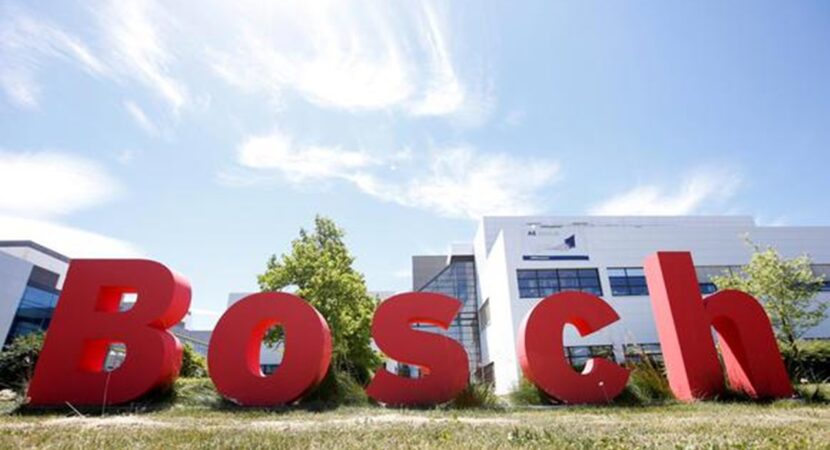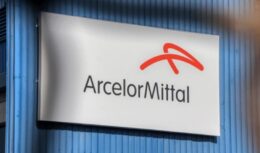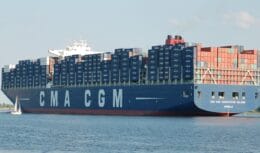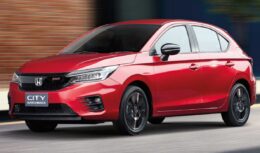
Bosch comes to revolutionize the automotive market and bets on a fully electric car that does not need a plug to charge the battery and can be filled up at any gas station
Have you ever imagined having a fully electric car that, to charge the battery, no sockets needed, Can you fill it up at any gas station? The German multinational bets on the use of ethanol to generate hydrogen and, from this chemical element, produce electricity! The feat is still being studied, but according to Besaliel Botelho, president of Bosch in Latin America, during Live do Valor, it may be the way for Brazil to compensate for delays in the evolution of vehicles and participate in the global electrification process.
Read also
- Bosch brings manufacturing from the US to Brazil and offers more than 70 high school, college and internship positions at its factories in SP, Curitiba and other Brazilian regions, this May 13
- Multinational Volkswagen launches the new Kombi, the classic that remained in production until 1975 here in Brazil will have a successor!
- Nestlé, the largest food and beverage company in the world invites candidates with and without experience for vacancies in RJ, MG, SP and other regions of Brazil
- Ethanol prices soar at the pumps as consumption grows and mills extract more sugar; who pays the bill is the consumer
- 1000+ Middle and High School Jobs in the Production Operator role open today, May 12th
- After Ford, Chevrolet, Honda and Audi withdraw or reduce production of vehicles in the country, the multinational Bosch brings US manufacturing to Curitiba
- The largest steel industry in Brazil and Latin America calls for Production Assistant, Operator, Technician, Electrician, and much more, for job openings in RJ, SP, MG, BA and other Brazilian regions
“For Brazil, this is the right moment to participate in this technology and not just wait for the new technologies developed abroad to be brought to the country”, said the executive.
New technology for recharging electric cars with ethanol comes from renewable sources and promises to eliminate the use of batteries
The proposal is to separate hydrogen from ethanol to produce electricity through a chemical process, inside the vehicle itself, so that the owner does not depend on sockets and also dispenses with batteries.
The new technology will compete for the market with battery industry, which has evolved in reducing prices and presenting lighter products that guarantee greater autonomy for the vehicle.
The president of Bosch defends that the fuel cell that produces hydrogen from ethanol is from a renewable source. “This is the moment for us to be protagonists again”, he points out.
European countries have set deadlines between 2025 and 2030 as limits for the end of sales of vehicles with combustion engines
Thinking about the environment, the German multinational Bosch has a global plan to invest R$ 1 billion in the hydrogen project by 2024. Botelho says that, while this type of technology based on ethanol does not advance in Brazil, it is possible to make up for lost time in the development of the electric car by intensifying the production of hybrids that can be fueled with ethanol.
To insert Brazil in the global context of transport electrification, it is necessary to think of a “bridge”, as the president of Bosch says
The executive underscores the commitment of European countries to the environment, which set the deadline for the end of sales of vehicles with combustion engines by 2030.
Bosch believes in the Brazilian potential and announced a R$ 170 million plan to nationalize a diesel engine injector production line in Curitiba
The German multinational auto parts manufacturer Bosch was against the movement of car manufacturers Ford, Chevrolet, Honda and Audi, who decided to withdraw or reduce production in Brazil, and brought to the country the production of injectors and injector nozzles for trucks that were produced in their factories in United States, thus expanding the diesel injection systems division at its plant in Curitiba.
This is an opportunity for Brazil to sell products to other countries that are beginning to stop being manufactured in other regions. “This line will supply Europe and the United States”, he points out. “Brazil needs to seek in manufacturing the axis for export”.
Despite a very adverse year, Bosch increased its revenue in 2020. The operation in Latin America reached revenues of BRL 6,9 billion, an increase of almost 6% compared to the previous year. With 8,2 employees, the Brazilian subsidiary accounted for 74% of sales volume in the region. Of the R$ 5,1 billion in revenue in the country, 26% was obtained from exports to Latin America, North America and Europe.











Army summons Brazilians with up to…
Come be a watermelon, you too
Air Force F-16 fighters…
Everything is fine, 100-year secrecy,…
Air Force F-16 fighters…
Well... It's flying scrap... Typical...
Air Force F-16 fighters…
Which genocide are you talking about? Than…
They discover the third largest deposit…
That’s why all foreigners and NGOs…
You didn't read the article, right?
Before commenting, read the article, 100%…
You didn’t read the article, right friend?…
China carried out agrarian reform, which…
Nobody cares what you want, the...
It's written in 100% private matter, no...
Private project, 🤣🤣🤣🤣, my friend at least…
What a pity